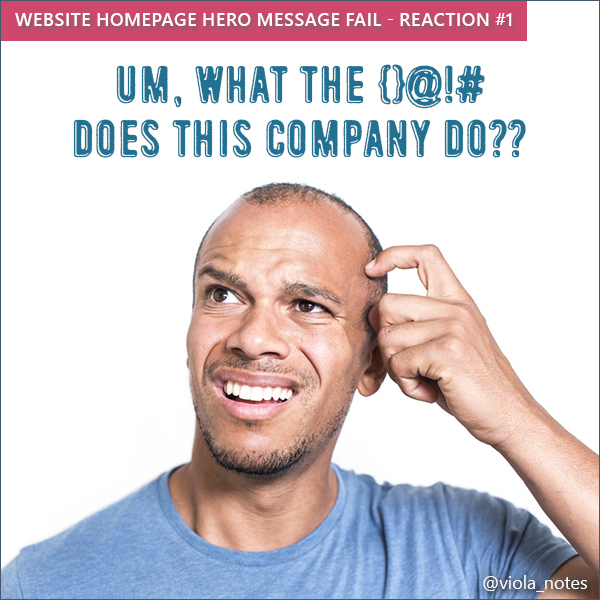The following post was written by Noya Lizor, during her tenure as Director of Content at Viola (2014-2019).
The idea that every entrepreneur should have a well-rehearsed elevator pitch was once considered a “must”, so that should they ever meet potential investors in an elevator (or a metaphorical elevator) they’d be ready to “wow” them enough in the time that it takes to travel a few floors for them to want to hear even more. These days, people are a lot more time-poor and pitch weary, so if you can’t explain what your startup does and why it’s unique in a sentence or two, your lack of clarity may result in either skepticism or disinterest (or both), and the same goes for your website’s hero message.
If anyone asks you what you do, and you can’t say “I founded” (or, “I work at”) a startup that does “X”, and be done with it in no more than one or two sentences (max), chances are they’ll be sorry they asked. It’s kind of similar to when someone bumps into you and asks “How are you?” They can probably tolerate a one-sentence overview of “how you are”, but if you start going on and on (and on…), they may outwardly nod politely, but on the inside they’re most likely counting the seconds until your lips stop moving.
Your one-liner about your startup needs to be concise enough to be considered a complete description, but also interesting enough for the listener to want to know more.
Only then, if they prompt you for more information, is it appropriate for you to go into more detail, and even then, you’d do well to break down the purpose of your startup and its various solutions into bite-sized snippets that can each be expanded upon as required.
The same theory should apply to websites too, but I’m continually baffled by the number of times I encounter homepages that are so cryptic or annoyingly vague, you have to wonder if the people behind it have any idea what they’re doing.

You know that moment when you arrive at a website for the first time and after examining the homepage for quite a few seconds you still have no idea what it’s for? We’ve all been there, and we usually deal with it based on how badly we care about figuring it out. In most cases, however, statistics show that our patience wears thin pretty quickly.
If you’re a site owner or a marketer who’s in charge of boosting website conversions, I have just 7 words for you: How effective is YOUR homepage’s hero message?
Why your homepage’s hero message needs to compel readers (instantly)
People’s attention online is super-limited. I have talked about this before in relation to the importance of writing killer headlines for your blog posts, creating memorable explainer videos for your startup, using the perfect images both to promote and accompany your blog posts, and on many other occasions. The gist of the point is that people make decisions – either consciously or subconsciously – about whether or not to engage with something online in mere seconds, whether it’s to click on a link to an article, “Like” or Share an item of content, or browse further into a website to either learn more or perform an action.
Sometimes it literally only takes a split second to decide, and this decision-making instinct has evolved by necessity into a super-fast one because there’s simply not enough time in the day to get through all the content we want to consume. So if we see something that fails to catch our attention immediately, our natural response is to skip it and move on.
Then there’s the other extreme. Just as a lack of content can be confusing, too much content can be just as confusing. Many website owners who are afraid that their visitors won’t navigate beyond the homepage, attempt to compensate for it by cramming as much as possible (“the kitchen sink”, if you will) on to the homepage, in the hope that this will tell the visitors everything they need to know. But this approach of trying to say too much in a single page usually accomplishes the opposite effect, overwhelming and driving away people who might have otherwise been inclined to browse further, if only they understood what the site was about without having to “try too hard”.
Here are 3 types of hero-message scenarios that are likely to confuse website visitors:
1) The first is that there is no hero message at all, just a non-descript slogan and a visual with a call to action of some kind. Sometimes you might be inclined to click on it, and sometimes not, depending on whether you have the patience, interest, or time.
2) The second is that the homepage is full of content, but no clear or prominent explanation of what the company does, almost as though you’re expected to already know it in advance (even though it’s your first visit to the website). Not very logical!
3) The third is that there is a hero message or company description, but it’s so convoluted with hifalutin mumbo-jumbo, that it doesn’t really explain anything at all and might as well not even exist.
When faced with any of these scenarios, or in other words, in the absence of a clear, one-liner hero message that tells you within a second or two exactly what the company does, most people react in one of three ways:
![]() They give up and move on.
They give up and move on.
![]() They navigate to the “About” page in the hope of finding the answers there. Then, if all becomes clear and they’re still interested, they may continue to browse through the website, but if they’re none the wiser, then at this point it becomes “too much work” to figure it out, so they give up and move on.
They navigate to the “About” page in the hope of finding the answers there. Then, if all becomes clear and they’re still interested, they may continue to browse through the website, but if they’re none the wiser, then at this point it becomes “too much work” to figure it out, so they give up and move on.
![]() They spend quite a bit more time browsing through the website to figure out what the company offers or what their products do, but this is highly unlikely as most people don’t have the level of intent or patience to invest that sort of effort.
They spend quite a bit more time browsing through the website to figure out what the company offers or what their products do, but this is highly unlikely as most people don’t have the level of intent or patience to invest that sort of effort.
So what does it take to nail your homepage’s hero message?
When it comes to the home page, less is definitely more, which is why the elements that are on the page need to be optimized for maximum appeal. Including key ‘hooks’ like a clear, one-liner hero message and an explainer video (if relevant/possible) will boost the odds that people will understand what you do a lot faster.
The ideal homepage hero message is essentially a one (or maximum two) sentence summary of what your company offers or what your products do, and for extra punch, it should be followed by a compelling call to action. It’s as simple as that.
It’s not meant to replace a slogan, which is often a much shorter version of the hero message or company description (sometimes it’s not even a complete sentence) designed to add memorability to your brand. It’s also not meant to replace an in-depth description that people usually expect to read in an “About” page.
The way to think about a homepage hero message is as a “You Are Here” sign for people who have just arrived at your website for the first time:
![]() If there’s no “signage” at all, they’ll have no idea where they’ve landed
If there’s no “signage” at all, they’ll have no idea where they’ve landed
![]() If there’s too much signage, they’ll become overwhelmed and probably click away faster than you can say “exit intent”
If there’s too much signage, they’ll become overwhelmed and probably click away faster than you can say “exit intent”
![]() If there is signage, but it’s way too wordy, complex or cryptic, they’ll either click away or click around to try and figure it out, but they won’t be happy about it (remember, people’s browsing time online is super limited)
If there is signage, but it’s way too wordy, complex or cryptic, they’ll either click away or click around to try and figure it out, but they won’t be happy about it (remember, people’s browsing time online is super limited)
In short, you need to think about how to word your hero message so that there can be no doubt as to what your company does or offers, without going into too much detail that might overwhelm the reader. The ability to deliver a compelling message in virtually no time at all is “online gold”.
Even if you offer many product lines or services, or if your offering is relatively technical and requires a great level of detail in order to explain properly – you need to be able to condense the gist of it into a single sentence, so that first-time visitors will be able to determine right away whether there’s any point for them to stick around to learn more, or move on.
![]() The clearer your one-liner, the better it serves as a “hook” to reel your visitors further into the site. It also spares visitors who have no interest in what you offer from wasting time trying to figure it out, eventually arriving at the same conclusion anyway.
The clearer your one-liner, the better it serves as a “hook” to reel your visitors further into the site. It also spares visitors who have no interest in what you offer from wasting time trying to figure it out, eventually arriving at the same conclusion anyway.
![]() Your homepage’s hero message shouldn’t attempt to explain multiple solutions in detail, and it shouldn’t use complex language just for the sake of sounding sophisticated. It should be straightforward, it should summarize everything that you offer into one overarching solution or purpose, and it should be written as simply and as clearly as possible.
Your homepage’s hero message shouldn’t attempt to explain multiple solutions in detail, and it shouldn’t use complex language just for the sake of sounding sophisticated. It should be straightforward, it should summarize everything that you offer into one overarching solution or purpose, and it should be written as simply and as clearly as possible.
Finally, crafting an effective hero message for your website forces you to extract the absolute gist of what your company does or offers in order to immediately captivate your target audience, so as an added bonus, the process of crafting your website’s hero message also inadvertently helps you to define and focus on the main premise of your offering, like a beacon that everyone involved in your company should be striving to reach no matter what role they fill in.
If you’re among the website owners who already have a kick-ass hero message on your homepage, then good for you! (Although it may be worthwhile revisiting and honing it every once in a while as your products evolve or your company goals shift). But if not, I hope that this post has offered some inspiration for you to go forth, and simplify.





